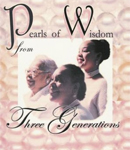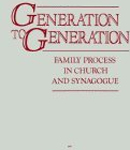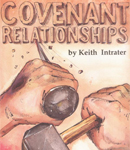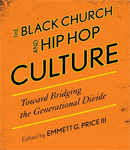|
GENERATIONS DAY
LECTIONARY COMMENTARY
Sunday, July 7, 2013
Gail M. Davis, Guest Lectionary Commentator
Associate Minister, Berean Baptist Church, Brooklyn, NY, and Doctor of Ministry Student at New York Theological Seminary
Lection – Genesis 17:6-9 (New Revised Standard Version)
(v. 6) “I will make you exceedingly fruitful; and I will make nations of you, and kings shall come from you. (v. 7) I will establish my covenant between me and you, and your offspring after you throughout their generations, for an everlasting covenant, to be God to you and to your offspring after you. (v. 8) And I will give to you, and to your offspring after you, the land where you are now an alien, all the land of Canaan, for a perpetual holding; and I will be their God.”
(v. 9) God said to Abraham, “As for you, you shall keep my covenant, you and your offspring after you throughout their generations.”
I. Description of the Liturgical Moment
In 2002, Celia Ford, Theresa Allen, and Pamela Simonson Ferguson (a mother, daughter, and granddaughter team) began a multigenerational journey ultimately penning the book, Pearls of Wisdom from Three Generations. It was through this project and their ministry that Generations Day was launched. “Generations Day helps the American family embrace their ‘multi-generationalism,’ learning to appreciate and honor it, building on its strengths…a new day for America…Together as One.”1
The Church is one place where multiple generations congregate for fellowship and worship under one roof. Unfortunately, the church can produce the most segregated time wherein youth worship separately from adults, elders do not appreciate the modern gospel music and therefore separate ‘traditional’ services are created for them, or young adults feel out of place and reduce their active participation.
The need for Generations Day therefore is significant and timely for the African American church today, since the church is the conduit through which the covenant God made with Abraham achieves fulfillment. If we do not take the time to link the generations to share information and speak of the covenant while it can be remembered, our people will perish, as they will continue to move farther apart from God because they lack generational faith continuity.
II. Biblical Interpretation for Preaching and Worship: Genesis 17:6-9
Part One: The Contemporary Context(s) of the Interpreter
When Alzheimer’s disease began to increase in the African American community, I took it personally and was called paranoid. In my mind, it is a form of genocide because if one cannot remember their history or who they are, they cannot pass it on.
We have a family covenant involving land my great-grandfather left for his children, which is to keep the land in the family. My grandfather left the land to his children, my father and his siblings continued the covenant with my generation, and we started having family reunions and meetings and were taught the value of the land and the importance of family sticking together. Now the ball is in our court. My first cousins and I are now the elders in the family and we have not done a good job of gathering and meeting to safeguard the covenant for future generations.
In our text, God told Abraham in verse 9, “As for you, you shall keep my covenant, you and your offspring after you throughout their generations.” That means we have a responsibility to make sure the next generation is equipped to pass the covenant on. The key is memory—you have to not only be able to remember the covenant, but also afford the next generation the ability to create new memories for themselves.
Part Two: Biblical Commentary
Genesis 17 is a continuation of the family saga of Abram and Sarai introduced to us at the end of Genesis chapter 11. Genealogy is an important aspect of Hebrew tradition; it was important to know “who’s your Daddy!” One did not have an identity apart from his or her father. For example, Abram would be referred to or addressed as Abram, son of Terah. That dynamic was witnessed in our country, particularly in the south; your identity was linked to your father—that’s ‘Big Dave’s boy’ or ‘Mistah Dutton’s daughter’. The idea is the linkage, the connection between the generations—a reminder to always remember who you are. As today’s children of God, we too acknowledge and remember whose we are.
God came to Abram and told him to leave his people, his country, his familiarity and go to a new land, a new place that God chose (see chapter 12) with the promise of blessings and covenants. The first covenant found in chapter 15 speaks of God’s promises to Abram for protection, rewards, and an heir. In chapter 17 when Abram is 99 years old, God makes another covenant with him—that he will be the ancestor to a multitude of nations, and changed his name from Abram (which means exalted ancestor) to Abraham, which means ancestor/father of a multitude.2
These promises that God made with Abraham were to be fulfilled through the generations to come. Abraham would never see that promise fulfilled, just as many who marched, fought for justice, and our civil rights did not see the promises of civil rights fulfilled. We are the recipients and a portion of the fulfillment. We owe so much to those who have gone before us. We walk in their footsteps and stand on their shoulders. It is a miscarriage of gratitude that we have allowed the fiery darts of disrespect, disregard, demoralization, depression, and discouragement thrown by forces in society, who want to keep us divided, to be the standard by which we relate to one another. It is now up to the adults of this generation of believers to equip the next generation and remind them of God’s everlasting covenant.
In his book, Covenant Relationships, Keith Intrater posits, “One generation makes a covenant with God. The covenant bears with it the promise of future blessings. The blessings are manifested fully in the generation that follows. The second generation goes deeper in covenant with God and receives even greater promises. Whenever faith can be sustained through more than one generation, the power and magnitude of the vision of the kingdom of God will grow to even greater dimensions.”3 He further notes that the key to making covenant with God is to understand the link between one generation and another. The covenant goes in both directions, backward and forward. There is spiritual authority inherent in the link between one generation and another.4
A covenant is an agreement between two parties. God said to Abraham, I will establish my covenant between me and you and your offspring after you—to be God to you and your offspring after you (v. 7). I am going to give you what I promise you; now here is your part: keep the covenant. Abraham kept the covenant by performing physical circumcision on all the males then and it was to be done on males eight days old for generations to come. The Hebrew word for covenant in our text is berith (ber-eeth), meaning to cut.5 Therefore, something has to be cut away in order for this agreement, this covenant, to fully take effect. Our society, being removed from a biblical culture, is by and large unfamiliar with this far-ranging concept of covenant and is certainly estranged from the concept of covenant-keeping.6
In making the case for Generations Day, I believe we have to cut away the idiosyncrasies and schisms that have caused the generational divide in our relationships with each other and with God. We have to cut away the foreskin of sin that holds the impurities in our hearts and move toward acquiring a heart like God’s. When we work toward this end, the results will include committed relationships, mutual respect, and honor toward one another.
Through the telling of its stories in churches and families, each generation is able to preserve its covenant with God and each other. Have family reunions and revamp church anniversaries to include all generations in the church, so the next generation will have church stories sooner rather than later. In my family, my generation may not see the fruit that the land has yet to bear, but our prayer is, God, help us to remember the covenant and grant us a spirit of intentionality to ensure that the generations behind us know your will and your word.
Celebration
One thing we can be certain of is that even if we forget who we are, God never forgets. Even if our minds stop functioning at optimum capacity, God is still a covenant-keeper. God was committed to past generations and is committed to present and future generations. God promised never to leave us or forsake us. We have come this far by faith, leaning on the Lord, and we are going to continue to trust in His Holy Word, because God never fails. We rejoice for the roads that have been paved for us and for the wonderful opportunity we have to pave roads for others.
Descriptive Details
The descriptive details of this passage include:
Sounds: Sighs and moans of awe and astonishment from Abraham listening to the voice of God speaking his covenant promise to him; sarcastic laughter;
Sights: The appearance of God talking with Abraham; Abraham (99 years old) on his face before God in the desert sand, overwhelmed by God’s presence; and
Smells: The sweet fragrance of the presence of God; the aromas from animals, grass, and the desert breeze.
III. Other Suggestions for Preachers and Teachers
Projects
- Have youth/youth groups plan a luncheon or breakfast for the seniors in your congregation. Ensure that multiple generations are at each table together to help produce conversation and dialogue. This may not happen on its own, so have ice breakers and other methods available at each table to ensure brisk, continuous, dialogue.
- Work on multi-generational projects such as making a historic quilt for your church. My church worked on a project like this for its 150th Anniversary. It was a great experience for the younger women to sit with the older women and share stories while making the anniversary quilt.
- Have young people (pre-teens) visit nursing homes and/or senior centers and have the re-teens and the seniors tell stories to create video-storytelling moments. Make sure that the video is shown in the facilities and in your church either during a worship service, Sunday or Sabbath School, youth hour, Bible study, or all of the above.
Books
 |
Ford, Celia,Theresa Allen, and Pamela Simonson Ferguson. Pearls of Wisdom from Three Generations. Fort Washington: Thelemaque Publishing, 2003. |
|
|
 |
Friedman, Edwin H. Generation to Generation: Family Process in Church and Synagogue. New York: Guilford Press, 1985. |
|
|
 |
Intrater, Keith. Covenant Relationships: A Handbook for Integrity and Loyalty. Shippensburg: Destiny Image, 1989. |
 |
Price, Emmett G. III, ed . The Black Church and Hip Hop Culture: Toward Bridging Generational Divide. Blue Ridge Summit: Scarecrow Press, 2011. |
Articles
- “Is the Era of Age Segmentation Over?” An interview with Kara Powell in the Leadership Journal, ChristianityToday.com, Summer 2009, pp.1–6.
- Taylor, Fay Banks. “Intergenerational Sharing in the African American Church: Re-establishing the Connection Between the Elders and the Middle Generation.” Drew University, 2010. http://udini.proquest.com/view/intergenerational-sharing-in-the-goid:366456130/ (accessed 13 December 2013).
Program Resource
- Street, Nick. “Passing the Mantle, A New Generation of Leaders in the Black Church.” (Clergy and Lay Leader Institute), Center for Religion and Civic Culture, University of Southern California, 2011.
Notes
1. http://pearlsofwisdom3.com/ (accessed 9 December 2012).
2. Intrater, Keith. Covenant Relationships: A Handbook for Integrity and Loyalty. Shippensburg: Destiny Image, 1989, 180.
3. Ibid., 181.
4. Ibid., 180.
5. Strong, James Strong. The New Strong’s Exhaustive Concordance of the Bible. Nashville: Thomas Nelson, 1996.
6. Intrater, Covenant Relationships, 12.
| 
